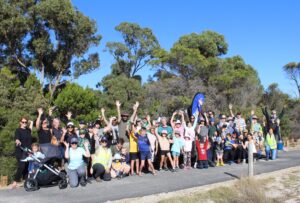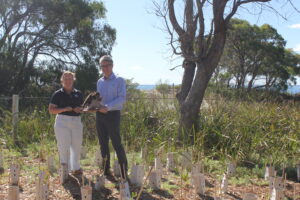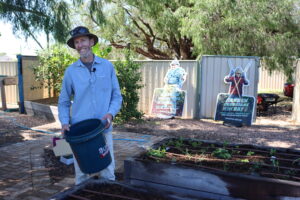Community members soaked up the latest marine science from Geographe Bay and beyond at GeoCatch’s Life in Geographe Bay marine seminar in November.
Over 70 people turned out to hear about the biodiversity in Geographe Bay, Ngari Capes Marine Park and surrounding national marine parks. Footage of migrating whales, the Great Southern Reef and seafloor from various depths off the coast was a highlight for participants.
UWA Associate Professor Kathryn McMahon, Dr Sahira Bell from Department of Biodiversity. Conservation and Attractions, ECU researcher Dr Tim Langlois and Chris Burton from Geographe Marine Research presented research covering seagrass, fish, marine parks, Leeuwin current, whale monitoring and citizen science.
Cr Ross Paine opened the event and said he was surprised by the amount of research being undertaken.
“It’s encouraging to see how our understanding of the local marine environment is improving,” he said.
“If we can track changes in the system, we can hopefully build more resilience to future pressures like climate change.
“Like many in the community, I feel lucky to have a healthy Bay on my doorstep and want to ensure it’s protected for future generations,” he said.
Current research indicates that Geographe Bay and the surrounding marine environment is relatively healthy, however in the future may be under threat from excess nutrients, over-fishing and warming sea temperatures.
Everyone can do their bit to protect the Bay by reducing fertiliser runoff from gardens and farms, observing the marine park no-take zones and leaving a safe distance between marine mammals and motorised vehicles.
If you would like more information from the event, please contact Sarah Molloy at sarah.molloy@dwer.wa.gov.au
This event was supported by Royalties for Region’s Healthy Estuaries WA and Revitalising Geographe Waterways programs. These State Government initiatives aim to support the long-term health of our south-west estuaries.




















